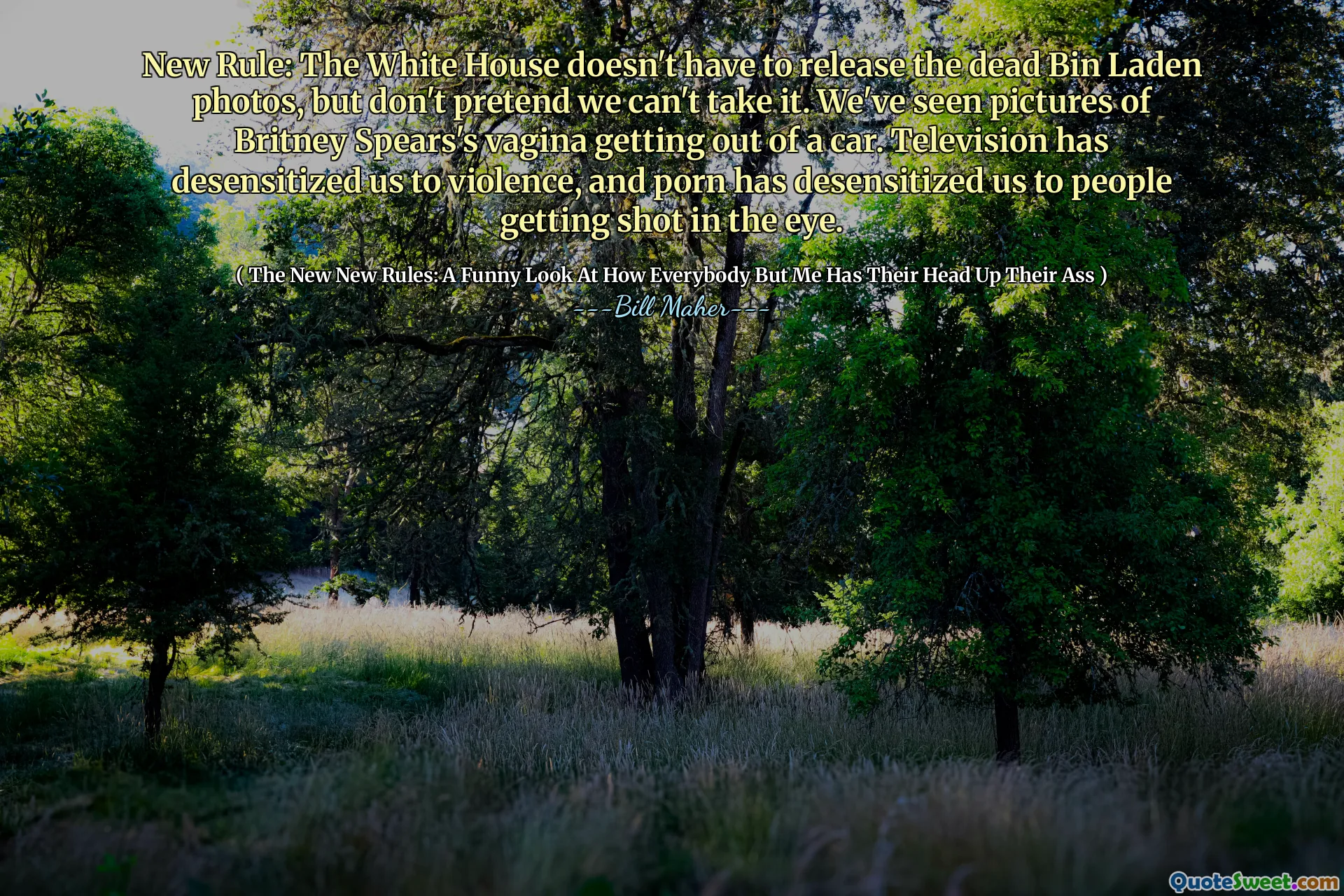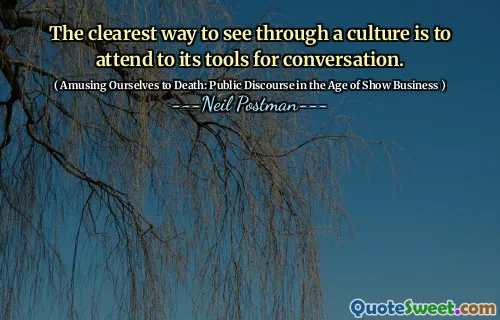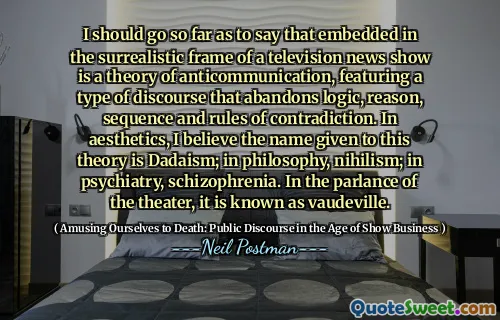
New Rule: The White House doesn't have to release the dead Bin Laden photos, but don't pretend we can't take it. We've seen pictures of Britney Spears's vagina getting out of a car. Television has desensitized us to violence, and porn has desensitized us to people getting shot in the eye.
This quote humorously highlights the paradoxes and desensitization present in modern society. It points out the double standards and contradictions that often define cultural discourse. On one hand, there is a reluctance or refusal by authorities to release graphic images of Bin Laden's death, possibly out of respect or to avoid fueling conspiracy theories. On the other hand, the public's exposure to similarly shocking or explicit content through media and entertainment has made them more accepting of violence or nudity in other contexts. The mention of Britney Spears's private moments getting out of a car underscores how personal and scandalous images, once considered private, become public spectacle through media coverage, further blurring the line between private life and public consumption. The latter part of the quote emphasizes how television and internet pornography have reduced our sensitivity to violence and injury, making us less shocked or disturbed by images of harm or death. Such desensitization could have profound implications—affecting our empathy, moral compass, and response to real-world tragedies. The humor used by Maher serves as a satirical critique of our media habits, questioning whether our tolerance for these visual stimuli is healthy or dangerous. By comparing the controlling secrecy surrounding political or national security issues with what is considered acceptable in the realm of entertainment and voyeurism, he underscores a societal hypocrisy. Ultimately, this quote invites us to reflect on how media shapes our perceptions and feelings, urging us to be mindful of the kind of images and information we consume and how it influences our collective consciousness.





